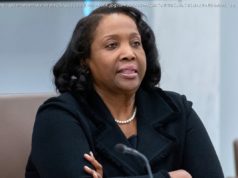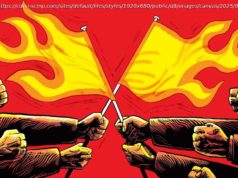Twenty years on, the former president-turned-novelist hasn’t figured out how to talk about the investigation that nearly ousted him from office.
Somehow, Bill Clinton didn’t see the question coming.
The former president, now 20 years removed from the time congressional Republicans tried unsuccessfully to expel him from office, was sitting across from CBS’s Mo Rocca for one of several interviews he and James Patterson are doing to promote their co-authored new thriller, The President Is Missing. The book opens with the fictional president, Jonathan Lincoln Duncan, facing his own impeachment threat, so Rocca saw a natural segue to bring up the ordeal that sidetracked Clinton’s second term.
“How do you look back at your own impeachment?” Rocca asked.
Clinton seemed taken aback. He paused. His mouth opened but nothing immediately came out. “Well,” Clinton started, “I knew it wouldn’t succeed.
“It wasn’t a pleasant experience,” he continued, having apparently found his bearings. “But it was a fight that I was glad to undertake. They knew there was nothing impeachable. And so, we fought it to the end. And I’m glad.”
Clinton may be glad he survived the partisan battle, but he evinces no joy in revisiting the topic now—however predictable it may be that it keeps coming up. His impeachment is a wound that hasn’t healed: Clinton has long since made amends with many of his former GOP rivals—the Bush family, most notably—but the years-long investigation into the Whitewater land deal that ended as a sex scandal stings as painfully as ever. And all this time later, he still hasn’t figured out a way to talk about it. It is the topic interviewers dare not broach—as raw now as it was 14 years ago, when the former president jabbed his finger at a pestering Peter Jennings and said, “You don’t want to go there.”
On Monday, it was not the late ABC News anchor but rather Craig Melvin of NBC whose play for presidential reflection— asking whether he had apologized to Monica Lewinsky —caused Clinton to snap. “You typically have ignored gaping facts in describing this. And I bet you don’t even know them,” Clinton told Melvin. “This was litigated 20 years ago. Two-thirds of the American people sided with me. They were not insensitive of that.”
What he and Patterson had hoped would be a simple promotional tour for a somewhat-gimmicky-but-easily-marketable union of ex-president and best-selling author has become something else—a trip down impeachment memory lane.
After just a couple of days, a pattern is starting to develop: The interviewer will let Clinton and Patterson spend the first few minutes talking up the book, explaining their unusual partnership, dropping just enough tantalizing plot details and selling points—a thriller that’s realistic — to spike traffic at Amazon.com. Then the focus shifts to Clinton… and impeachment, and Donald Trump, and #MeToo. What, Rocca asked Clinton, does he think about Senator Kirsten Gillibrand’s assertion last fall that he should have resigned after his affair with Monica Lewinsky? Is the media covering President Trump and his scandals fairly? And, from Melvin, has Clinton personally apologized to Lewinsky for the trauma she experienced as a direct result of their dalliance?
By this point in both sessions, Patterson shrunk into a potted plant, while Clinton’s disposition shifted from sunny, to serious, to indignant. His exchange with Melvin became awkward to the point of being riveting television. “Nobody believes that I got out of that for free. I left the White House $16 million in debt,” Clinton protested at one point, in a line echoing Hillary Clinton’s much-maligned remark that she and her husband were “dead broke” after his presidency. Patterson then sprung up to remind Melvin of other womanizing presidents, like John F. Kennedy, and Clinton grabbed the lifeline. “Do you think President Kennedy should have resigned?” he asked, summoning the open secrets of the leader Clinton idolized in adolescence.
Presumably, Clinton didn’t expect the interviews to take these turns. But why wouldn’t he? The current president is ensnared in scandal, including of the sexual variety. The news is aflutter with talk of impeachment— from Trump’s own lawyer, no less. And here comes the last president to face impeachment, who happens to have just co-authored a book about a president facing the threat of impeachment. That’s not to mention how only two years ago, the sordidness of the 1980s and 1990s became a dominant storyline in the campaign that blocked Clinton’s wife from winning the office he once held.
Clinton, now 71, is no longer the practiced politician he once was, and he was probably right when he said in both the CBS and NBC interviews that he’d have trouble winning an election today (though not for the self-congratulatory reasons he cited). Perhaps he thought he’d be asked about the Russia investigation, or the Democrats’ chances in 2018, or who he likes for 2020, or the frightening specter of a devastating cyberattack that features prominently in the novel. But surely he surmised that his interlocutors might also bring up impeachment and Lewinsky, and surely he had prepared an answer that betrays less of the bitterness he’s carried over the past two decades.
If he didn’t, well, that may be one more reason why Democratic candidates aren’t calling him as much as they used to: He’s not as politically nimble anymore, and his inability to reflect on his own self-inflicted scandal looms as a much larger liability now. “I wish he’d said today that he’d said many times I apologized, publicly apologized, felt horribly for the actions that he did, and moved on,” Terry McAuliffe, the longtime Clinton confidante and former Democratic governor of Virginia, lamented Monday on MSNBC.
Clinton was supposed to be back in the White House now, making his own historic turn as the nation’s first First Gentleman. When that plan fizzled in the shock of 2016, he took his long ex-presidency in a different direction, scratching an itch to write (or co-write) fiction.






